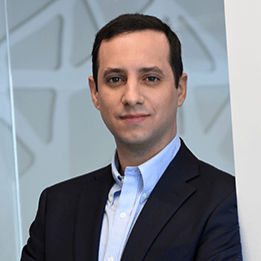

Chief legal officer and secretary of the board | Transelec



Eduardo Tagle
Chief legal officer and secretary of the board | Transelec
What are the most significant cases or transactions that your legal team has recently been involved in?
We have a very extensive practice within the company, as I believe we advise practically all the other areas and departments. We have in-house lawyers dedicated to procurement, business, finance, regulatory issues, environmental – those are probably the most important ones.
Probably the most challenging projects are coming from the business development area. We are launching a partnership with a new partner – one of our bigger projects, and the first project that we do that is outside transmission. We have been negotiating contracts for the past five years and we recently finalised the contracts and launched the start of the project. That has been challenging and, in that area, we are now exploring new possibilities with new partners, including two new joint ventures and exploring more and more those alliances to develop big infrastructure projects.
Along with that, all these projects come with project financing work, which requires a lot of specialised work, which means that in the finance area we clearly need more help from external lawyers, though on the business side we always try to do it all in-house.
From an environmental perspective, all these projects have been very challenging, so we need stronger teams with a deep knowledge on that. Ultimately, we try to do the most significant work in-house.
How important is choosing to work with external lawyers who align with your company’s values? Are you likely to reconsider what firms you work with based on this?
It is probably one of the most important things. We usually look for expertise, of course, as we approach external lawyers for very specific matters, but after that, having them aligned with our strategy and knowing our business from within is very important for us. In a way, this is something we try to do as in-house lawyers, but external counsel need to be on the same page as well.
Why are in-house lawyers well-placed to drive change in their organisations?
This is key. Our department is more and more part of the executive decisions of the company and not merely holds an advisory role. In Chile, I think this has been happening five to ten years. When I started working in-house, most work was done by external lawyers and companies had in-house that use to handle only administrative things and worked as a bridge between external offices and business partners.
This has changed, and very quickly, in the past decade, particularly in big companies, as they have realised that in-house legal departments add an incredible value that can’t be added by external counsel.
The most strategic decision maker, within a company, for me, is the in-house lawyer. If we outsource, it’s only for something very specific, but ultimately, that process of strategising and deciding on specific and important issues comes from the legal department.
Chief Legal Officer and Secretary of the Board | Transelec
Chief legal officer and secretary of the board | Transelec